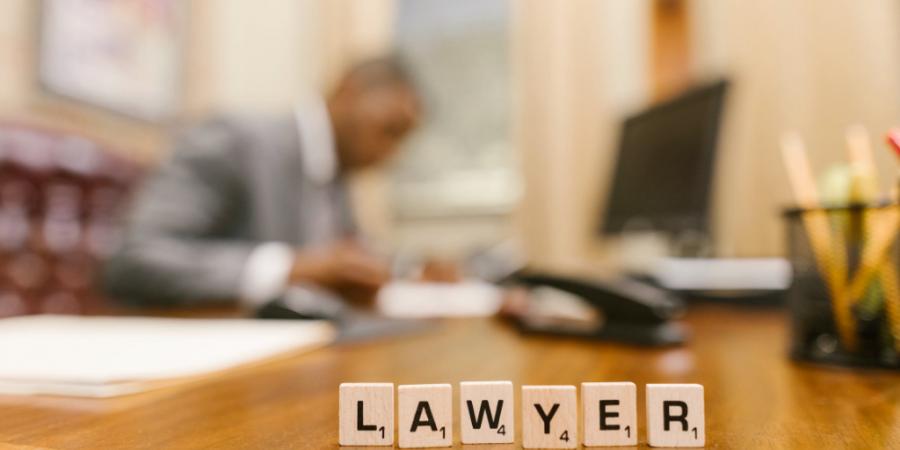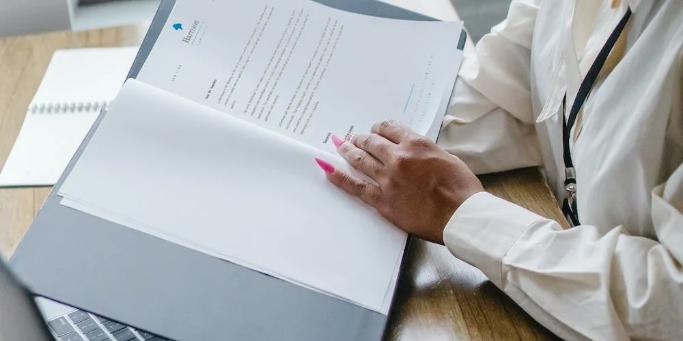ChatGPT Prompts for Lawyers: How to Use ChatGPT as a Lawyer

As a lawyer, your ability to communicate effectively and persuasively can make all the difference in winning a case or securing a favorable outcome for your clients. However, coming up with the right words to say can often be a challenge, especially when you're dealing with complex legal issues. This is where ChatGPT prompts for lawyers come in.
ChatGPT is a powerful AI tool designed to assist lawyers in crafting clear, concise, and compelling legal documents, emails, and other forms of communication. With ChatGPT prompts, you can quickly generate high-quality content that is both SEO and conversation optimized, saving you time and helping you to stay ahead of the competition. Whether you're drafting legal briefs, negotiating settlements, or communicating with clients, ChatGPT prompts can help you to achieve your goals with ease and confidence. So why not give it a try and see how ChatGPT can enhance your legal practice today?
How to Use ChatGPT as a Lawyer
ChatGPT is a powerful tool that can be used in a variety of ways to enhance your legal practice. Here are just a few examples of how you can use ChatGPT to streamline your workflow and improve your outcomes:
1. Legal Research
One of the most time-consuming aspects of practicing law is conducting legal research. With ChatGPT prompts, you can quickly generate research summaries, case briefs, and legal citations with ease. Simply input your research question or topic into ChatGPT, and it will generate a comprehensive summary of the relevant legal precedents and case law. This can save you hours of research time and help you to stay up-to-date on the latest legal developments in your field.
2. Legal Writing
Another area where ChatGPT can be incredibly useful is in legal writing. Whether you're drafting legal briefs, memos, or pleadings, ChatGPT can help you to craft clear, concise, and compelling legal arguments. Simply input your legal issue or topic, and ChatGPT will generate a series of suggestions to help you develop your arguments and strengthen your case. This can help you to write more persuasively and effectively, and ultimately win more cases for your clients.
3. Legal Marketing
In today's digital age, legal marketing is more important than ever. With ChatGPT, you can generate high-quality SEO-optimized content for your law firm's website, blog, or social media channels with ease. Whether you're writing a blog post, creating a social media campaign, or developing an email newsletter, ChatGPT can help you to create content that is both engaging and effective. This can help you to attract more clients and grow your law practice over time.

ChatGPT Prompts for Legal Research
As mentioned earlier, ChatGPT can be incredibly useful for legal research. Here are some specific prompts that you can use to generate high-quality legal research summaries, case briefs, and legal citations:
1. Research Question
Input your research question or topic into ChatGPT, and it will generate a comprehensive summary of the relevant legal precedents and case law. For example, if you're researching the legal implications of a recent Supreme Court decision, simply input the name of the case into ChatGPT, and it will generate a summary of the case and its impact on relevant legal issues.
Example ChatGPT Prompts for Legal Research Questions:
What are the legal requirements for starting a small business in [insert jurisdiction]?
What are the legal implications of using copyrighted material without permission?
What are the key differences between a trademark and a copyright, and how do they apply in [insert jurisdiction]?
What is the legal process for filing a lawsuit against a company for product liability in [insert jurisdiction]?
What are the legal requirements for getting a divorce in [insert jurisdiction]?
Can you summarize the key legal arguments and precedents involved in [insert case name]?
What are the potential implications of the ruling in [insert case name] for future similar cases in [insert jurisdiction]?
How has the legal landscape changed since the ruling in [insert case name], and how has it affected the application of the law in [insert jurisdiction]?
Can you provide a critical analysis of the reasoning and evidence presented in [insert case name], and suggest potential flaws or strengths in the arguments?
How have lower courts and legal scholars interpreted and applied the ruling in [insert case name], and how has it affected the development of the law in [insert jurisdiction]?
Can you compare and contrast the rulings in [insert case name] with similar cases in other jurisdictions or legal systems, and identify any potential lessons or insights for [insert jurisdiction]?
What are the potential consequences of overruling or revisiting the ruling in [insert case name], and how might it affect the stability and predictability of the law in [insert jurisdiction]?
Can you assess the impact of the ruling in [insert case name] on related areas of law or social policy, and identify any potential conflicts or inconsistencies that may arise in [insert jurisdiction]?
How have different interest groups or stakeholders responded to the ruling in [insert case name], and what are their arguments for or against it in [insert jurisdiction]?
Can you provide a detailed analysis of the procedural history and factual background of [insert case name], and identify any potential biases or limitations in the way the case was litigated or decided in [insert jurisdiction]?
2. Legal citation
If you need to generate a legal citation for a case or statute, ChatGPT can help you to do so quickly and easily. Simply input the name of the case or statute into ChatGPT, and it will generate a citation in the appropriate legal format. This can save you time and ensure that your legal citations are accurate and up-to-date.
Example ChatGPT Prompts for Legal Citation:
What is the proper legal citation for the case [insert case name], decided by the [insert court name] in [insert year]?
How do I cite to a particular section of the [insert statute name], as amended in [insert year], in a legal brief or memorandum?
Can you help me generate a proper citation for the case [insert case name], which appears in volume [insert volume number] of the [insert reporter name] reporter series?
What is the correct format for citing to a federal statute in a legal document, and how do I indicate the specific section and subsection referenced?
Can you provide me with the legal citation for the case [insert case name], which was heard by the [insert court name] and appears in the [insert reporter name] reporter series?
How do I cite to the [insert statute name] in a legal brief or memorandum, and what information should I include to ensure proper citation?
What is the proper format for citing to a state court decision in a legal document, and how do I identify the specific volume and page numbers?
Can you help me generate a proper citation for the case [insert case name], which appears in the official reporter series for the [insert court name]?
What is the correct way to cite to a federal regulation in a legal document, and how do I indicate the specific section and subpart referenced?
Can you provide me with the legal citation for the statute that governs [insert legal issue], and explain how to properly cite to it in a legal document?
3. Case Brief
If you need to write a case brief for a particular legal case, ChatGPT can help you to do so quickly and effectively. Simply input the name of the case into ChatGPT, and it will generate a comprehensive summary of the case, including its facts, legal issues, and holding. This can help you to write more persuasively and effectively, and ultimately win more cases for your clients.
Example ChatGPT Prompts for Legal Case Brief:
Can you provide a brief summary of the facts, issue, holding, and reasoning in [insert case name], as well as the court's decision and any dissenting or concurring opinions?
What are the key legal principles and precedents that the court relied upon in its decision in [insert case name], and how do they apply to the specific facts of the case?
Can you identify the main arguments and evidence presented by the parties in [insert case name], and assess their relative strengths and weaknesses from a legal perspective?
How did the court apply the relevant legal standards and tests to the facts of the case in [insert case name], and what factors did it consider in reaching its decision?
What are the potential implications of the ruling in [insert case name] for future cases in the same or related areas of law, and how might it affect the development of the law in [insert jurisdiction]?
Can you explain the procedural history of [insert case name], including any lower court decisions or appeals that preceded it, and how they may have influenced the outcome of the case?
What are the key policy considerations and social factors that may have influenced the court's decision in [insert case name], and how did it balance competing interests and values?
Can you assess the potential strengths and weaknesses of the court's reasoning and holding in [insert case name], and suggest potential alternatives or critiques from a legal or policy perspective?
How did the court's decision in [insert case name] align with or depart from prior decisions or established legal doctrines in [insert jurisdiction], and what implications does this have for the law going forward?
Can you provide a concise and accurate summary of the key points and takeaways from [insert case name], and explain why it is significant or noteworthy in the context of [insert legal issue or topic]?
ChatGPT Prompts for Legal Writing
Legal writing can be a daunting task, especially when you're dealing with complex legal issues. Here are some specific prompts that you can use to generate high-quality legal writing with ChatGPT:
1. Legal Issue
Input your legal issue or topic into ChatGPT, and it will generate a series of suggestions to help you develop your arguments and strengthen your case. For example, if you're writing a legal brief on a particular issue, simply input the issue into ChatGPT, and it will suggest relevant legal precedents, case law, and arguments to support your position.
Example ChatGPT Prompts for Writing About Legal Issues:
What are the key legal precedents and case law relevant to [insert legal issue or topic], and how do they support or undermine your position in your legal brief?
Can you provide a summary of the major arguments and counterarguments related to [insert legal issue or topic], and assess their relative strengths and weaknesses from a legal perspective?
How might recent developments in [insert area of law] impact the outcome of your case, and how can you incorporate them into your legal brief to strengthen your position?
Can you identify any potential gaps or weaknesses in your legal argument related to [insert legal issue or topic], and suggest strategies to address or mitigate them?
What are the key policy considerations or social factors that may be relevant to your case, and how can you effectively incorporate them into your legal brief to support your position?
Can you provide a clear and concise statement of the legal standard or test that applies to [insert legal issue or topic], and explain how it should be interpreted and applied in your case?
How can you effectively use persuasive legal authority, such as expert opinions or legal scholarship, to bolster your argument related to [insert legal issue or topic] in your legal brief?
Can you identify any potential counterarguments or alternative interpretations of the law that may be raised by the opposing party, and suggest effective responses to them in your legal brief?
How can you use analogies or comparisons to other legal cases or situations to support your position on [insert legal issue or topic] in your legal brief?
What are the potential implications or consequences of the court's decision on [insert legal issue or topic], and how can you effectively address them in your legal brief to persuade the court to rule in your favor?
2. Legal Argument
If you need help developing a legal argument, ChatGPT can provide you with suggestions to help you make your case more persuasively. Simply input your argument into ChatGPT, and it will suggest relevant legal precedents, case law, and other sources to support your position. This can help you to write more effectively and persuasively, and ultimately win more cases for your clients.
Example ChatGPT Prompts for Developing a Legal Argument:
What are the key legal principles and precedents that support your position in the case, and how can you effectively incorporate them into your argument?
Can you provide a clear and concise statement of your legal argument, and explain why it is relevant and persuasive in the context of your case?
How can you use persuasive legal authority, such as expert opinions or legal scholarship, to support your argument and persuade the court to rule in your favor?
Can you identify any potential weaknesses or vulnerabilities in your argument, and suggest strategies to address or mitigate them?
How can you effectively use analogies or comparisons to other legal cases or situations to support your argument and make it more compelling?
What are the potential counterarguments or alternative interpretations of the law that may be raised by the opposing party, and how can you effectively respond to them in your argument?
How can you effectively structure and organize your argument to make it more persuasive and compelling, and ensure that it is easy for the court to follow and understand?
Can you provide a summary of the major factual and legal issues relevant to your argument, and explain how they support your position?
How can you effectively incorporate policy considerations or social factors into your argument to make it more persuasive and relevant to the court?
What are the potential implications or consequences of the court's decision on your argument, and how can you effectively address them to persuade the court to rule in your favor?
3. Legal Document
If you need to draft a legal document, such as a complaint, motion, or pleading, ChatGPT can help you to do so quickly and easily. Simply input your legal issue or topic into ChatGPT, and it will generate a series of suggestions to help you draft a clear, concise, and compelling legal document. This can save you time and ensure that your legal documents are of the highest quality.
Examples ChatGPT Prompts for Drafting a Legal Document:
Can you provide a clear and concise statement of the legal claim or relief that you are seeking in the document, and explain why it is relevant and persuasive in the context of your case?
How can you effectively incorporate relevant legal precedents, case law, and other sources of authority into the document to support your position?
What are the key facts and evidence that support your legal claim or relief, and how can you effectively present them in the document?
Can you identify any potential legal or factual weaknesses or vulnerabilities in your position, and suggest strategies to address or mitigate them in the document?
How can you effectively structure and organize the document to make it clear, persuasive, and easy for the court or other party to understand?
What are the procedural rules and requirements that must be followed when filing the document, and how can you ensure that you comply with them?
How can you effectively draft and format the document to ensure that it is professional, clear, and persuasive?
What are the potential objections or challenges that may be raised by the opposing party, and how can you effectively anticipate and respond to them in the document?
How can you effectively use legal language, terminology, and formatting conventions to ensure that the document is professional, persuasive, and legally sound?
How can you effectively use persuasive language, such as analogies, comparisons, and rhetorical techniques, to make your legal argument more compelling and persuasive in the document?

ChatGPT Prompts for Legal Marketing
Legal marketing is essential for attracting new clients and growing your law practice. Here are some specific prompts that you can use to generate high-quality legal marketing content with ChatGPT:
1. Blog post
If you need to write a blog post for your law firm's website or a legal guest posting article, ChatGPT can help you to generate high-quality content that is both engaging and informative. Simply input your topic into ChatGPT, and it will generate a series of suggestions to help you develop your post. This can save you time and help you to create content that is both SEO and conversation optimized.
Example ChatGPT Prompt for Writing a Legal Blog Post:
Please write a blog post on "{blogPostTopic}" with a "{tone}" tone. Use transition words and active voice. The post should be at least 1000 words long and have creative section titles. There should be a minimum of nine sections, each with at least two paragraphs. Incorporate the following keywords: "{keywords}".
2. Social media
If you're developing a social media campaign for your law firm, ChatGPT can help you to create content that is both engaging and effective. Simply input your topic or campaign into ChatGPT, and it will generate a series of suggestions to help you develop your content. This can help you to attract more followers and grow your social media presence over time.
Example ChatGPT Prompt for Legal Social Media campaign:
Write a twitter announcement about [insert legal issue or topic]
3. Email newsletter
If you're developing an email newsletter for your law firm, ChatGPT can help you to create content that is both informative and engaging. Simply input your topic or theme into ChatGPT, and it will generate a series of suggestions to help you develop your newsletter. This can help you to stay in touch with your clients and keep them informed about the latest legal developments in your field.
Example ChatGPT Prompt for Legal Email Newsletter:
We are a legal form for criminal defense. Please suggest some content ideas for our monthly newsletter.

ChatGPT Prompts for Legal Communication
Effective communication is essential for success in the legal profession. Here are some specific prompts that you can use to generate high-quality legal communication with ChatGPT:
1. Client communication
If you need to communicate with a client, ChatGPT can help you to craft clear, concise, and effective messages. Simply input your message into ChatGPT, and it will generate a series of suggestions to help you communicate your message more effectively. This can help you to build stronger relationships with your clients and ultimately win more cases for them.
2. Negotiation
If you're negotiating a settlement or other legal agreement, ChatGPT can help you to craft persuasive and effective negotiation messages. Simply input your message into ChatGPT, and it will generate a series of suggestions to help you negotiate more effectively. This can help you to achieve better outcomes for your clients and build your reputation as a skilled negotiator.
3. Presentation
If you need to make a presentation to a judge, jury, or other audience, ChatGPT can help you to create a clear, concise, and compelling presentation. Simply input your topic or theme into ChatGPT, and it will generate a series of suggestions to help you develop your presentation. This can help you to communicate your message more effectively and achieve better outcomes for your clients.
Conclusion
ChatGPT is a powerful AI tool that can help lawyers to streamline their workflow, improve their outcomes, and stay ahead of the competition. It's a relatively new technology and it's still not available world-wide yet. For example, using ChatGPT in China and Italy would be difficult or even illegal. Whether you're conducting legal research, drafting legal documents, developing legal marketing content, or communicating with clients, ChatGPT can help you to achieve your goals with ease and confidence. So why not give it a try and see how ChatGPT can enhance your legal practice today?
More to Read:
Previous Posts:










